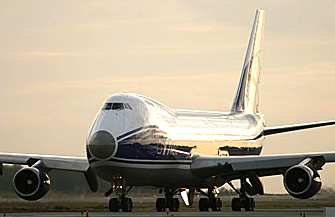
The new routes were an important and logical step for the development of the airline’s flight network. AirBridge Cargo was launched onto the market at the beginning of 2004 and today operates three flights per week from Luxemburg to Beijing and Tianjin (KNR) through Domodedovo airport (Moscow, Russia). The flight program from China operates through a hub located in Novosibirsk and from November started operating via Krasnoyarsk.
Stan Wraight, Managing Director of AirBridge Cargo said: “Germany is one of Russia and China’s main trade partners and we are delighted to offer our services on these routes. AirBridge Cargo offers an excellent product, tailored to what our clients want, and makes the most of the geographical advantages that Russia has to offer our clients.”
AirBridge Cargo has appointed a Frankfurt based general sales agent, Air Cargo Trade, with offices in a wide selection of locations in Europe. AirBridge felt that in November, after they open their own office in Frankfurt, they would together be able to achieve the best coverage of the German market. The new Frankfurt based AirBridge Cargo office would not only serve AirBridge Cargo but also serve Volga-Dnepr Group’s activity within the German market.
Frankfurt International Airport is the largest cargo airport in Europe and the seventh largest airport worldwide for both passenger and cargo traffic serving as an important hub for international flights from around the world. In 2003 Frankfurt Airport transported 1.55 million tonnes of cargo thus earning the name ‘CargoCity’. Frankfurt offers AirBridge cargo and their clients a full range of competitive advantages especially in its location.
In May 2004 AirBridge Cargo completed their first scheduled flight using their first Boeing-747-200F. In September AirBridge Cargo added another Boeing 747-200 to its fleet.
The company is currently considering different aircraft types to support the strategic development of its route network. In the future, it plans to operate a mixed fleet of Boeing 747 freighters and Russian-built Ilyushin 96-400, and Tupolev 204С freighters. Thus, in five to six years, it aims to operate a fleet comprising of at least six Boeing 747s and four to six Russian-built aircraft.
